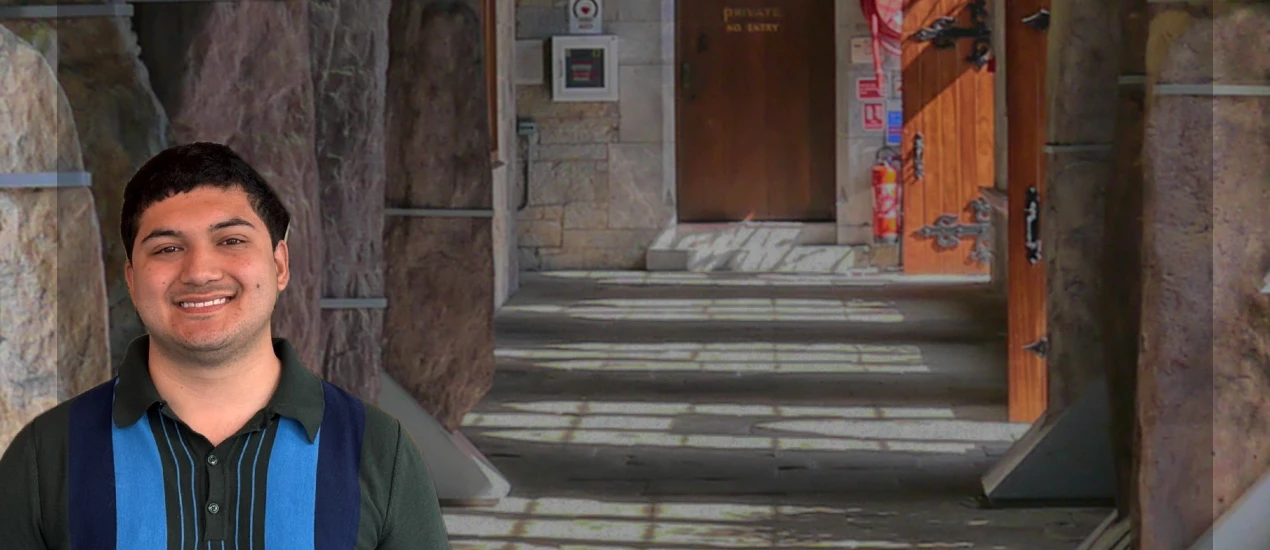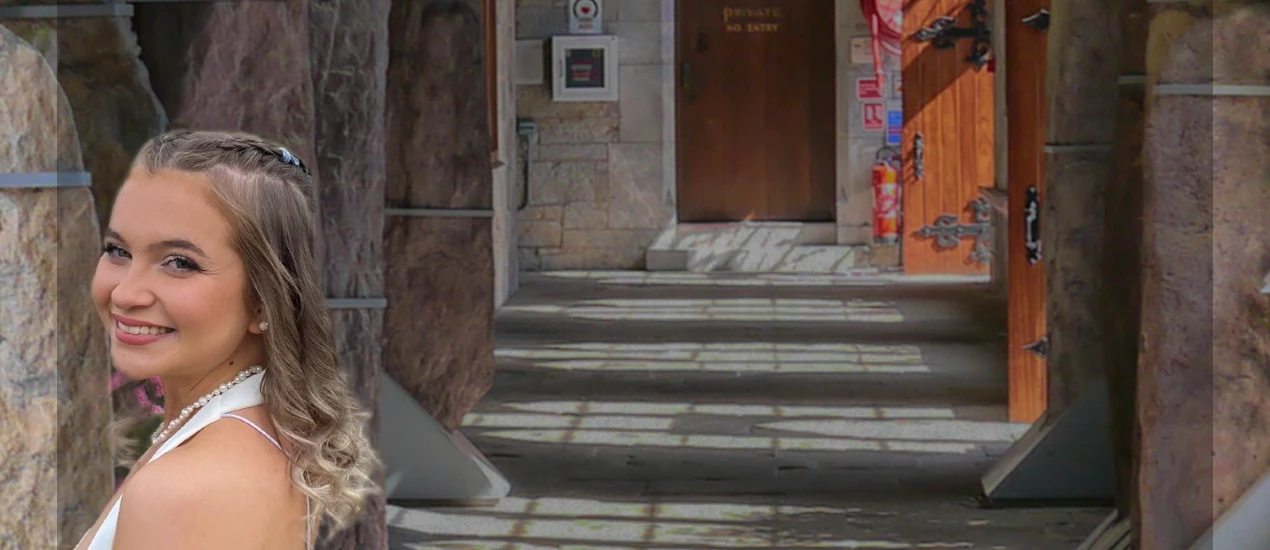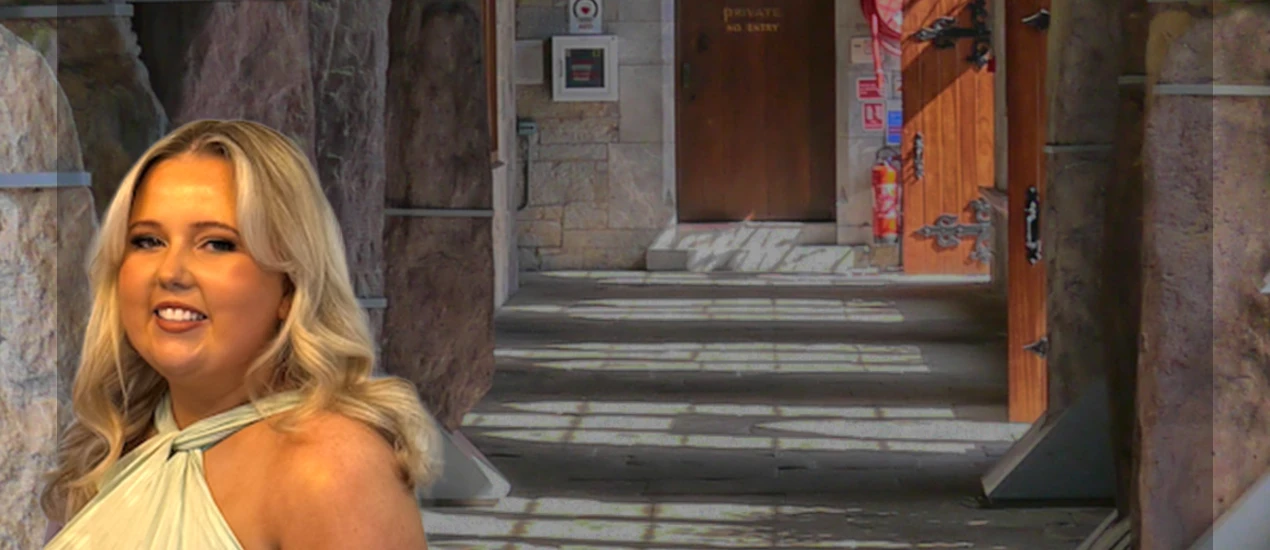| Code | CK118 |
|---|---|
| Duration | 3 Years or 4 Years with placement option |
| Teaching Mode | Full-time |
| Qualifications | BA (Hons) |
| NFQ Level | Level 8 |
| CAO Points | 2025: 300 |
| CAO Points Range | 2025: 300-464 |
Course Outline
Our BA (Hons) in Digital Humanities and Information Technology is an innovative degree program where you will explore a wide range of topics in the arts and humanities while also learning the principles of information technology and digital media. We examine how digital technologies can drive innovation and explore how they are changing our understanding of what it means to be human in the age of machines.
Our Department of Digital Arts & Humanities is part of the School of English & Digital Humanities at University College Cork. The program benefits from contributions across the College of Arts, Celtic Civilisation, and Social Sciences (CACSSS), as well as the School of Computer Science & Information Technology. If you are interested in applying digital technologies to research in the arts and humanities—whether in language, literature, philosophy, politics, geography, or related fields—our Digital Humanities team will guide you in exploring how technology can be utilized across various aspects of society.
Ultimately, the study of digital humanities emphasises the creative collaboration between the arts and technology. We promise you an exciting journey through one of the most innovative courses available on campus today.
Programme Outline
Our BA in Digital Humanities and Information Technology is a three-year course. You can also take a four-year degree under the International or Work Experience pathways as detailed:
- 3 Years: BA (Hons) Digital Humanities and Information Technology
- 4 Years: BA (Hons) Digital Humanities and Information Technology - International Pathway: Year 3 is spent in an approved foreign university where students will study approved courses/modules to the equivalent value of 60 credits.
- 4 Years: BA (Hons) Digital Humanities and Information Technology - Work Experience Pathway: Year 3 undertake a 5-credit Work Placement Plan module (DH3004) and a 55-credit Work Placement module (DH3005) (approved by the Board of Studies).
Modules
In Year 1 all students take Computer Science (CS) modules and Arts & Humanities (DH) modules to the value of 45 credits together with one other subject from Year 1 arts subjects (15 credits).
- CS1201 Introduction to Computer Systems (15 credits)
- CS1205 Programming Fundamentals I (5 credits)
- CS1206 Programming Fundamentals II (5 credits)
- CS1204 Databases for Digital Humanities (5 credits)
- DH1001 Digital Humanities: Theories & Concepts I (5 credits)
- DH1002 Digital Tools & Methods I (5 credits)
- DH1003 Research Methods & Practice (5 credits)
Plus 15 credits from one Arts (minor) field:
- Archaeology, Béaloideas, Celtic Civilisation, Chinese Studies, English, Geography, German, Greek, Italian, Latin, Philosophy, Politics, Religions & Global Diversity, Sociology, Spanish.
Academic Programme Catalogue
See the Academic Programme Catalogue for the complete and up-to-date content for this course. Note that the modules for all courses are subject to change from year-to-year. For complete descriptions of individual modules, see the Book of Modules.
Course Practicalities
Lectures
In addition to lectures, there are tutorials to support the course material.
Lab Sessions
Workshops and lab sessions are practical workshops that reinforce and provide effective direct instruction in digital skills and tools.
Online Learning
The course involves some group and online learning. Students and teachers on the BA in Digital Humanities & Information Technology create an engaged learning community in person and online.
Connected Curriculum
Our learning approach reflects our commitment to the Connected Curriculum where we emphasise the connection between students, learning, research and leadership through our vision for a Connected University. Our staff is at the forefront of this integrative approach to learning and will support you in making meaningful connections within and between disciplines across the arts and technology.
Why Choose This Course
UCC is a pioneer in the field of Digital Humanities in Ireland – its unique interdisciplinary composition allows you to take a mix of modules from across Arts, Digital Humanities, and Computer Science. So, if you are interested in applying digital technologies to the arts then this is the programme for you.
Digital Humanities Active Learning Space
We have a specially designed state-of-the-art Digital Humanities Active Learning Space which is a student-centered, high-tech, flexible space used for the delivery of lectures, workshops, and seminars. It also offers dedicated digitisation facilities, as well as a variety of tools and technologies that will provide you, as a student in the arts and humanities, with an opportunity to ‘learn by doing’. These include 3D scanners and 3D printers, virtual reality kits, gaming systems, and high-end photo equipment. A unique perk of being a DH student is that you have continual access to the bright and spacious DH room, allowing you a dedicated space in which to collaborate, study, and indeed socialise!
Placement or Study Abroad Information
Work Placement
The optional third year of this programme includes an opportunity for a work placement or study abroad which runs from January to September (a 9-month placement).
Companies that repeatedly employ our students on placement include Arlo Technologies, DB Schenker, Ervia, ESB Networks, Horner APG, Janssen Sciences, Johnson Controls, McAfee LLC, McKesson, Musgrave, Oracle Corp, Poppulo, and PWC Ltd.
Study Abroad
If you take the international pathway you will study abroad during Year 3 of the course through international partnerships as part of the Erasmus programme.
Skills and Careers Information
You will come away from this course equipped with an interdisciplinary skill set, which opens up a wealth of employment opportunities across a variety of industries in the technical and cultural sectors. Our graduates have gone on to pursue careers in a variety of settings, including IT, education, heritage, journalism, technical writing, publishing, galleries, and design.
Further Study
Our graduates are uniquely balanced across the arts and computing, having studied interdisciplinary modules from Arts, Digital Humanities, and Computer Science. This makes further study possible in many disciplines. Some discipline-specific options include:
For more information on other postgraduate options please see the CACSSS Postgraduate Study page.
Requirements
Leaving Certificate Entry Requirements
At least six subjects must be presented. Minimum grade H5 in two subjects and minimum grade O6/H7 in four other subjects. English and Irish are requirements for all programmes unless the applicant is exempt from Irish.
Applicants will need to meet the following minimum entry requirements:
| English | Irish | Other Language |
|---|---|---|
| O6/H7 | O6/H7 | O6/H7 |
EU/EFTA/UK Qualifications
EU/EFTA/UK applicants presenting an equivalent school-leaving qualification should review the EU/EFTA/UK Applicants page for information on equivalent grades and how to prove their level of English.
Mature Students
To compete through the mature entry route, applicants must be 23 years of age on or before 1 January of the application year and apply online via the CAO by 1 February. The application should include a statement of interest.
Further information on applying as a mature student is available on the Mature Applicants and Mature Student Entry support pages.
QQI FET Entry
Applicants who meet the required level of distinctions in required subjects can apply for entry to this course using specific QQI FET qualifications. Please review the Programme Requirements on our Information for QQI FET Applicants page for information on related QQI courses, and visit Access UCC’s QQI/FET Entry section for further support.
Non-EU Applicants
Non-EU applicants are expected to have educational qualifications of a standard equivalent to the Irish Leaving Certificate. In addition, where such applicants are non-native speakers of the English language they must satisfy the university of their competency in the English language.
To verify if you meet the minimum academic and language requirements visit our qualification comparison page and refer to our International Office page for more information.
Fees and Costs
- Whether you are an EU or Non-EU student will affect the course fees applicable to you. See more information on EU Fees, Non-EU Fees, or Free Fees Status.
- The State will pay the tuition fees for EU students who are eligible under the Free Fees Scheme. The annual student contribution and capitation fees are payable by the student.
- See the Fee Schedule to find out the course fee.
- Check out scholarships that may be available to you.
- Explore our Nurturing Bright Futures free online course (Module 5) to learn about managing your money as a student and budgeting for university life.
How To Apply
Irish and European (EU/EFTA/UK) Applicants
Apply via the CAO. See the CAO Handbook for useful information on applying through the CAO.
Mature Applicants
Apply via the CAO by 1 February. To apply for a place as a mature student, you must be 23 years of age on or before 1 January of the year of entry.
QQI/FET Applicants
Apply via the CAO. See our QQI/FET Applicants page for information on the Quality and Qualifications Ireland (QQI) Further Education and Training (FET) application process and whether there are routes available to this course.
Non-EU Applicants
If you are from outside the EU/EFTA/UK, apply online via the UCC Apply portal. See our International Office page for more information.



